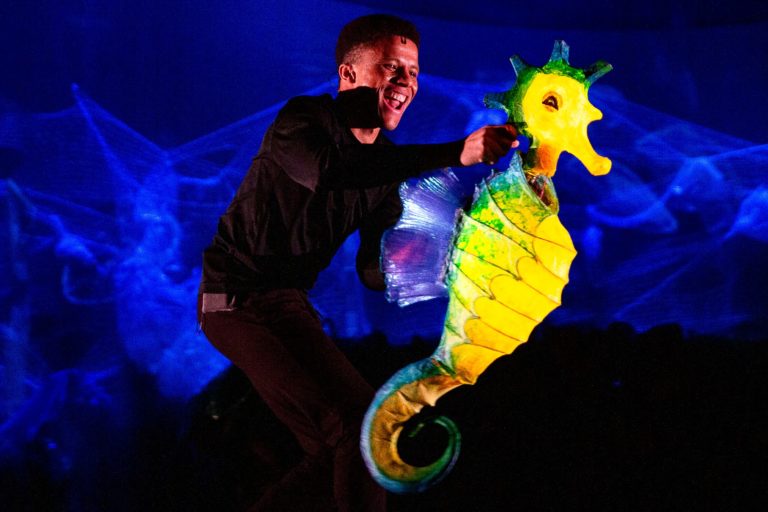Although specific to African languages, Magdalyne “Maggie” Oguti Akiding’s approach to second language instruction could be adapted to teach most any foreign language and is raising the bar for African language instruction in the United States with a fast-paced, communicatively oriented method that draws from culture, current events, and history.
A native of Kenya, Akiding graduates this month with a Ph.D. in Second Language Studies from Michigan State University’s Department of Linguistics, Languages, and Cultures. She first came to MSU in 2017 with experience as a Swahili Teaching Assistant, advanced degrees, and professional development training. She now is at the forefront of research into African language acquisition and recently was appointed as a Swahili instructor at Howard University in Washington, D.C.

Akiding stands out for her love of teaching Swahili to students in the United States, a skill in high demand as the need for more Americans to learn African languages pushes the need for more teachers.
“Maggie is a true language and cultural ambassador,” said Professor Paula Winke, who serves as Akiding’s doctoral advisor and directs MSU’s Second Language Studies Ph.D. Program. “She views each student in her Swahili language classes as an important globally minded person who will support world peace through language and cultural understanding.”
Language Through Diversity
Akiding was born and raised in western Kenya and attended Pwani University in the coastal region for her undergraduate studies in education, English language and literature. She said the experience exposed her to the cultural diversity of her native country and to the importance of intercultural competence. Languages were her strong suit, and she set her sights on teaching at a university.
“My mother is a retired school teacher, so I like to think she influenced me to love the profession,” Akiding said. “Teaching Swahili and researching instructional practices in African language classrooms is my contribution to promoting intercultural competence.”
Teaching Swahili and researching instructional practices in African language classrooms is my contribution to promoting intercultural competence.
Magdalyne Oguti Akiding
Akiding came to the United States in 2015 for her master’s in Applied Linguistics from Ohio University. She earned her Swahili Teacher Certification from Indiana University in 2017 and was accepted into MSU’s Second Language Studies Ph.D. program shortly thereafter.
While at MSU, Akiding has worked as a graduate assistant in the Center for Language Teaching Advancement (CeLTA) under a grant from the Andrew W. Mellon Foundation to support research and teaching of less commonly taught languages (LCTLs). Her work involved coordinating cross-university initiatives to develop shared, online materials for African language programs. For the past four years, she has taught Swahili through the University of Florida’s African Flagship Languages Initiative and has conducted research within the University of Florida’s African language acquisition program.

Akiding received a prestigious research award from the National Council of Less Commonly Taught Languages for her dissertation. After graduating MSU, she plans to continue to teach and research instructional practices in African language programs at Howard University.
“I have been inspired by the supportiveness of my professors and fellow students at MSU,” Akiding said. “As I approach the finish line, and as a newly hired lecturer myself, I aspire to be as supportive of my students as my MSU professors have been of me.”
Written by Ann Kammerer


